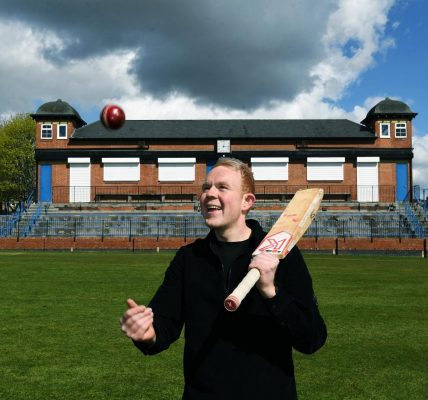Reclaim the Night's return after death of Sarah Everard highlights how little has changed in 44 years: Christa Ackroyd
Reclaim the Night's return after death of Sarah Everard highlights how little has changed in 44 years: Christa Ackroyd
It may be many years ago but I can still remember dancing around my bedroom to Helen Reddy’s feminist anthem I Am Woman while getting ready for my first grown-up night out to the local disco.
My new outfit, bought with money from my Saturday job and purchased from Chelsea Girl, was on a hook behind the door – a pair of Oxford bags, leg o’ mutton sleeved blouse and stripey tank top, with a smashing pair of yellow wet-look platform shoes my mum thought were the ugliest she had ever seen. I even treated myself to a Biba lipstick – hidden in my purse because I knew that might be considered one embellishment too far.
I thought I was the bee’s knees having won the argument to be allowed to go out on my own for the first time.
“You are far too young,” my mum had said, even though I was by that time in the lower sixth. I had, of course, responded by stomping off to my bedroom shouting “It’s not fair”, which proved the accuracy of her claims of immaturity.
So it was time to turn my attention to getting Dad onside. He was always much easier to persuade. I can picture him now, polishing his shoes on top of the coal bunker at the back of the house as I made my move.
“But, Dad,” I whined, “everybody else is going.” What’s more I had told them I would be joining them and my plan was now very much in jeopardy.
“It’s not about trusting you,” he said, “it’s about not trusting those who might harm you. So you can go on one condition – that I pick you up on my way home from work.” The shame of it.
What was even more mortifying was the fact that not only did he fulfil his promise to pick me up – and on many more nights that followed – he did so in his police uniform after his shift finished at 10pm. And if I wasn’t waiting for him outside he came inside to look for me. All I wanted to do was catch the last bus home. But it never happened. Thank goodness.
Two weeks later, and fearing I would be grounded, I never told him that a man had jumped out of the bushes and exposed himself while I was walking home in Bradford.
I also stopped travelling by myself on the top deck of the bus when the same thing happened again as I headed home from my Saturday job at Boots in Shipley. I dare not report it to the driver but got off two stops early for fear the perpetrator would follow me. I don’t know why I didn’t say anything.
Perhaps I was more worried about having my newfound freedom curtailed than I was about reporting the men who had terrified me at the time but who I dismissed as perverts. I changed my habits rather than believe the law would enforce them to change theirs. If I’m being honest I didn’t even consider their disgusting behaviour a crime. It was up to me to avoid putting myself in that situation again.
Within two years I had moved away and there was no dad in uniform to pick me up and drop me off as I found myself, still very much a cub reporter, covering a march of women through the streets of Leeds.
By that time, the lives of women in US had changed beyond recognition as we lived in the shadow of the US Ripper.
Their message was simple. Why should women be subject to an unofficial curfew when it was men who were committing the crimes? They received international recognition with a promise that their voices would be heard. But it seems they were not.
This week Reclaim the Night marched again under the same banner with the very same demands that violent and sex crimes against women must be taken seriously and, more importantly, dealt with appropriately with tougher sentencing.
And that is what is so wicked about the need for the growing calls for change we have witnessed this past week following the death of Sarah Everard. Her death is a tragedy, as is the fact that 44 years after the first march in Leeds we are still having this conversation.
In the 1970s, around 30 per cent of all reported rapes led to a conviction. That figure is now 10 per cent and doesn’t take into account the fact that more than 90 per cent of women won’t even report the offence for fear of not being believed. Or, if they do have the guts to do so, knowing they could face a brutal cross examination regarding their sexual history. And that’s if it does come to court.
So what the hell have we been doing all these years? The answer is we have been ignoring a culture where women not only fear being branded as liars if they do come forward, but all too often question whether it is their fault because of what they were wearing or where they were when the crime was committed.
Women have achieved much in the past few decades but on this important issue they have achieved nothing, especially when we learn of a woman attending last weekend’s vigil on Clapham Common who reported a case of indecent exposure as she was heading home, only to be told by a police officer they had had “enough with the rioters” that night.
Rioters? From where I was sitting it was heavy-handed policing that turned a peaceful vigil into a protest, where women trying to be heard were wrestled to the floor. But now, perhaps for the first time, it feels different. It is not a case of blaming all men, it is about a conversation that is being heard across the whole of society. And a call for change that must now be facilitated.
It is more than 40 years since I danced around as Helen Reddy sang: “I am woman, hear me roar in numbers too big to ignore.”
How utterly tragic that, for too long, this is exactly what has happened.










